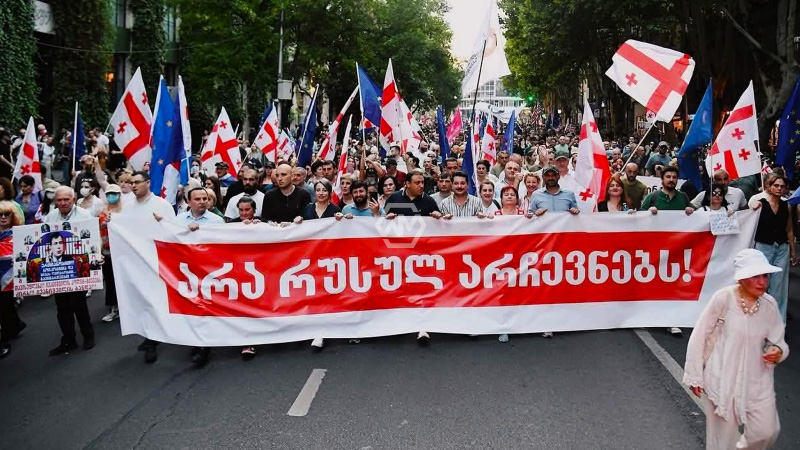- Thousands rally in Tbilisi demanding fair elections and renewed EU integration talks.
- The European Parliament warns Georgia must uphold democratic norms or risk isolation.
- Opposition parties unite against ruling Georgian Dream, alleging authoritarian drift.
Tbilisi’s streets swelled with demonstrators over the weekend as citizens demanded new parliamentary elections and denounced what they described as the Georgian government’s retreat from democracy.
Amid the turmoil, President Salome Zurabishvili has refused to recognize the legitimacy of recent elections, adding to the constitutional uncertainty gripping the nation.
Georgia’s Democratic Dilemma: Protests Escalate Over EU Standoff and Disputed Elections
The protest movement gained new momentum as Tina Bokuchava, leader of the United National Movement, called for unwavering resistance against what she described as “a Russian special operation.” Addressing supporters at Tbilisi’s Mziuri Park, she emphasized that the upcoming October 4 demonstrations would be critical in reclaiming democratic principles and countering Bidzina Ivanishvili’s influence over national politics.
Opposition parties argue that participating in the current political process only serves to legitimize what they view as an authoritarian regime. Eight major opposition groups have already pledged to boycott upcoming municipal elections, asserting that conditions do not meet basic standards of fairness. This boycott underscores deep divisions and mistrust in Georgia’s political landscape, where dialogue between ruling and opposition factions has all but collapsed.
The EU’s increasing skepticism about Georgia’s democratic credentials marks a significant shift. Once a frontrunner among Eastern Partnership countries, Georgia is now cited as an example of democratic backsliding. Brussels has warned that unless immediate steps are taken to restore rule of law and judicial integrity, the country risks losing its visa-free travel privileges and long-term integration prospects.
This political standoff is unfolding at a critical time. The EU’s message is clear: democratic reform is not optional. Georgia’s civil society continues to mobilize in response, signaling that public demand for accountability remains strong despite government crackdowns. With deadlines looming and international scrutiny intensifying, the country stands at a defining moment in its post-Soviet history.
Georgia’s political crisis is deepening as citizens and the international community demand democratic renewal. Whether the nation chooses reform or regression will shape its future for years to come.
“The price of apathy towards public affairs is to be ruled by evil men.” – Plato



